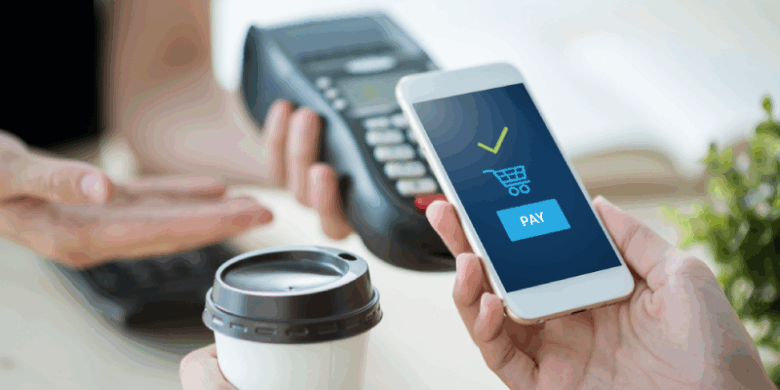In today’s rapidly evolving digital marketplace, mobile payments are a crucial way to pay and receive payments. This technology has completely transformed the way we handle money. Now, you can pay for everyday purchases and quickly transfer money across borders with just a tap of your phone. Mobile payments are more than just a convenience; they represent a step toward a cashless world where speed, security, and ease of use define how people behave. Businesses are quickly implementing these systems to meet growing demand, and customers are enthusiastic about their convenience. As our phones become our wallets, mobile payments are becoming increasingly important. Understanding how mobile payments work and why they’re so important is crucial for businesses, banks, and individuals. This article explores how mobile payments work, their benefits, and their implications.
Using Mobile Payments
Mobile payments operate thanks to digital wallets and payment apps that securely store your credit card information on your phone. When you make a payment, the app sends data via Near Field Communication (NFC), a QR code, or a cellular network-based method. These systems often use tokenization technology to replace sensitive information with a unique digital identifier, concealing your actual card details. This ensures the security of your financial data during transactions. When you swipe your phone across a payment terminal, a secure token is sent instead of your card number. The merchant’s system verifies the transaction, and the payment is processed immediately. This approach reduces the risk of fraud and simplifies the payment process, eliminating the need for physical cards or cash.
Security Features of Mobile Payments
The robust security of mobile payments is one of the main reasons for their popularity. Payment companies use biometric authentication methods such as fingerprint scanning, facial recognition, and device passwords to verify that users are who they claim to be before authorizing transactions. Additionally, tokenization and end-to-end encryption safeguard personal data during transactions. Mobile payment systems also use real-time fraud detection and multiple authentication methods to detect unusual behavior. Mobile payments offer a higher level of security compared to traditional card payments, which remain vulnerable to compromise and cloning. This strong security foundation builds trust and accelerates adoption by businesses and consumers.
Why Mobile Payments Matter for Consumers
Mobile payments are the most convenient and hassle-free way for consumers to pay. They only need a smartphone or smartwatch, eliminating the need for large amounts of cash or debit cards. Whether in a brick-and-mortar store, online marketplace, or through peer-to-peer transactions, transactions are completed quickly. This speed shortens wait times and simplifies everyday purchases. Many mobile wallets also offer loyalty programs, coupons, and rewards built into their apps, adding value to users. Financial inclusion also heavily relies on mobile payments, particularly in regions underserved by traditional banks. Access to digital banking services with just a mobile phone helps reach the unbanked worldwide.
The Importance of Mobile Payments for Businesses
From a business perspective, access to mobile payment options has become essential. When stores accept mobile payments, customers check out faster, resulting in satisfied customers and preventing cart abandonment. Mobile payment systems also provide businesses with valuable information about their customers, such as their spending patterns and preferences, allowing them to develop more targeted promotions and improve the customer experience. Mobile payments can also lower costs by reducing the need for cash and streamlining accounting processes. In an era where speed and digital efficiency are crucial for customers, businesses that accept mobile payments are better positioned to remain competitive and attract tech-savvy consumers.
The Role of Mobile Payments in a Cashless Society
As we move closer to a cashless global economy, mobile payments are at the heart of this transformation. Countries like China, Sweden, and South Korea are leading the way in standardizing mobile apps as a payment method. This trend improves the efficiency of the banking system by reducing the need for physical currency. Governments and banks also support this transformation by promoting the development of digital infrastructure and regulations to make payment systems more interoperable and accessible. The widespread use of mobile payments makes transactions more transparent, which helps prevent tax evasion and black market activity. However, this move also raises concerns about data privacy and technology dependency, making it crucial to strike a balance between innovative ideas and security.
The Future of Mobile Payments
Global adoption of new technologies will determine the future of mobile payments. New technologies like artificial intelligence, blockchain, and 5G connectivity will make mobile payment systems faster, more secure, and more intelligent. We can expect smoother cross-border payments, lower transaction fees, and more personalized user experiences thanks to data analytics. The integration of mobile payments into smart products, wearable technology, and even cars will change the perception of convenience. As digital currencies and central bank digital currencies (CBDCs) become increasingly popular, mobile payments will help many people adopt them. The future appears promising: the transformation of money into a truly digital form will significantly alter the behavior of both countries and individuals.
Conclusion
In short, mobile payments are more than a passing fad; they are the future of global commerce. They make financial transactions easier and more secure, offering unparalleled benefits for consumers and businesses. As technology advances, mobile shopping will continue to evolve and become an increasingly integral part of our daily lives. The importance of mobile payments in ensuring everyone has access to banking services, accelerating the development of the digital economy, and creating a cashless future cannot be overstated. Businesses that adapt will gain a competitive edge, and customers will have a convenient and secure way to manage their money. Mobile payments are crucial because they have the potential to transform the way people shop globally. They’re not just changing how we pay; they’re changing everything about modern life.
FAQs
1. How do mobile payments work?
Mobile payments are digital payments that can be made through apps, wallets, or contactless technology on smartphones, smartwatches, or other mobile devices.
2. Is paying with your phone safe?
Yes, mobile payments are highly secure thanks to advanced security features like facial recognition, encryption, and tokenization.
3. What tools can you use to pay with your phone?
Near Field Communication (NFC), QR codes, and mobile apps linked to banks or credit card companies make payments simple and easy.
4. Are mobile payments beneficial for businesses?
Of course. Businesses can process checks faster, handle less cash, obtain valuable customer information, and improve customer satisfaction.
5. Will mobile payments completely replace cash?
Mobile payments are growing rapidly, but they’re unlikely to completely replace cash until infrastructure, government policies, and consumer adoption improve.



